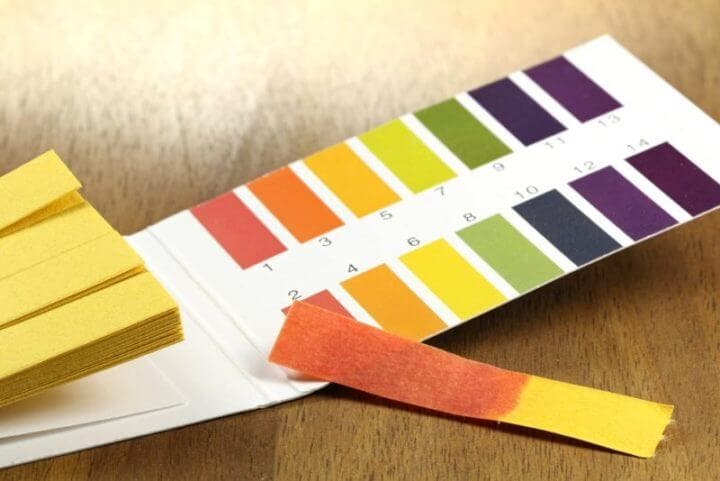The human body is the union of systems based on organisms and structures that work together to fulfill the functions of the living being. Therefore, from the smallest cell to the largest organ, it is an extremely important factor for the proper functioning of this system.
Such is the case with electrolytes, which despite being tiny and imperceptible to the human eye, are involved in many essential processes in the body. They play a role in the conduction of nerve impulses, muscle contraction, hydration, and regulate your body's pH levels . Therefore, like any other component, it is necessary to obtain an adequate amount of these in order to keep the body functioning properly.
Discover everything you need to know about these interesting and very important particles and how they affect the functioning of your body during the day to day through this guide to electrolytes .

What are electrolytes?
Generally speaking of electrolytes, we refer to particles that carry either a positive or a negative charge. Therefore, if we talk about electrolytes in the body , we refer to mineral salts that are present in our blood and other body fluids (sweat and urine), negatively charged (anions) or positively (cations), which in a solution conduct an electric current.
Among the major physiological electrolytes are calcium, magnesium, potassium, and sodium. All are necessary for various bodily processes, including proper nerve and muscle function, maintaining acid-base balance, and keeping you hydrated. Similarly, the body's nervous reactions and muscle function depend on the correct exchange of these in and out of cells.

3 functions of electrolytes
1. Muscle function
Calcium is the most abundant mineral in the human body , which plays an important role in vascular and muscular function, nerve transmission, and intracellular signaling. However, most of the calcium reserve of the human body is stored in the bones and teeth as an integral structural and functional component, including the regeneration of bone.
This electrolyte is necessary for muscle contraction, it allows the muscle fibers to slide together and move over each other as the muscle shortens and contracts. Similarly, magnesium is also required in this process so that the muscle fibers can slide out and the muscles can relax after contraction.

2. They are able to provide adequate hydration
Osmosis is a process in which water moves through the wall of a cell membrane from a dilute solution (more water and fewer electrolytes) to a more concentrated solution (less water and more electrolytes). In this way, electrolytes, especially sodium, help maintain fluid balance through osmosis .

3. Regulate internal pH levels
PH is a measure of how acidic or alkaline a solution is. In your body, it is regulated by chemical buffers, or weak acids and bases, that help minimize changes in your internal environment.
To stay healthy, your body needs to regulate its internal pH , and to achieve this, having the correct balance of electrolytes is critical .

Electrolyte imbalance
In some circumstances, electrolyte levels in the blood can become too high or too low, causing an imbalance. These alterations can have a detrimental effect on your health and can even be fatal in certain cases.
These imbalances often occur due to the loss of body fluids for prolonged periods such as vomiting, diarrhea, sweating or high fever; for this reason, it is important to remember to replenish lost fluids when it is hot or sick. In addition, they also happen due to an inadequate diet with a lack of vitamins, hormonal or endocrinological disorders, injuries such as severe burns and kidney disease.
When there is an imbalance in electrolyte levels , the person may suffer the following symptoms: muscle spasms or cramps, palpitations and irregular pulse, seizures, headache, intermittent or partial paralysis, fatigue, shortness of breath, confusion and nervous disorders such as anxiety.
Therefore, we must be vigilant and try to keep the electrolytes in the body balanced as much as possible, since serious imbalances can interfere with the way the body works.

Electrolytes and sweat
When you sweat, you lose both water and electrolytes, especially sodium and chloride. As a result, long periods of exercise or activity, particularly under high temperatures can cause a significant loss of these particles.
However, it is enough to get the normal amount of sodium from food and drinking water to stay hydrated and to rebuild those lost particles. In other words, the sodium consumed through your normal diet is enough to cover any losses.

Electrolyte rich foods
The best way to achieve and maintain electrolyte balance is through a healthy diet. The main dietary sources of electrolytes are fruits, vegetables (green leafy vegetables, bananas, avocado, and sweet potato), and dairy. However, in the Western diet, a common source of sodium and chloride is table salt. On the other hand, electrolytes like bicarbonate occur naturally in your body, so you don't have to worry about including them in your diet.
A balanced diet that includes sources of electrolytes should be sufficient for most. Usually the body can efficiently regulate them and keep them at the correct levels. But, in some circumstances, such as episodes of vomiting and diarrhea where the losses of these particles are excessive, it may be useful to supplement with a rehydration solution that contains electrolytes.

conclusion
Electrolytes help the functions of your body to be carried out optimally, from something as simple as getting up from a chair to something more complicated like running a marathon.
Not only proteins, carbohydrates and good fats are important for our health, as both vitamins and minerals are of crucial importance so that we can perform at our best in everything we do.
References
- West, H. Electrolytes: Definition, Functions, Imbalance and Sources. For Healthline. [Revised November 2018].
